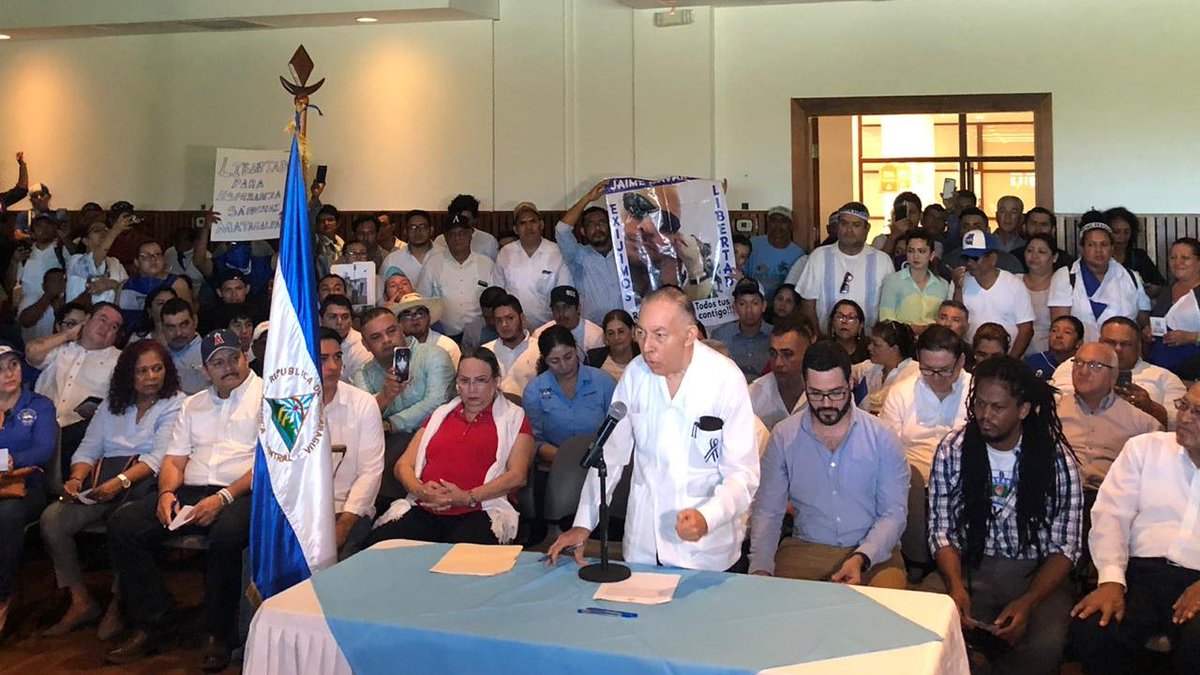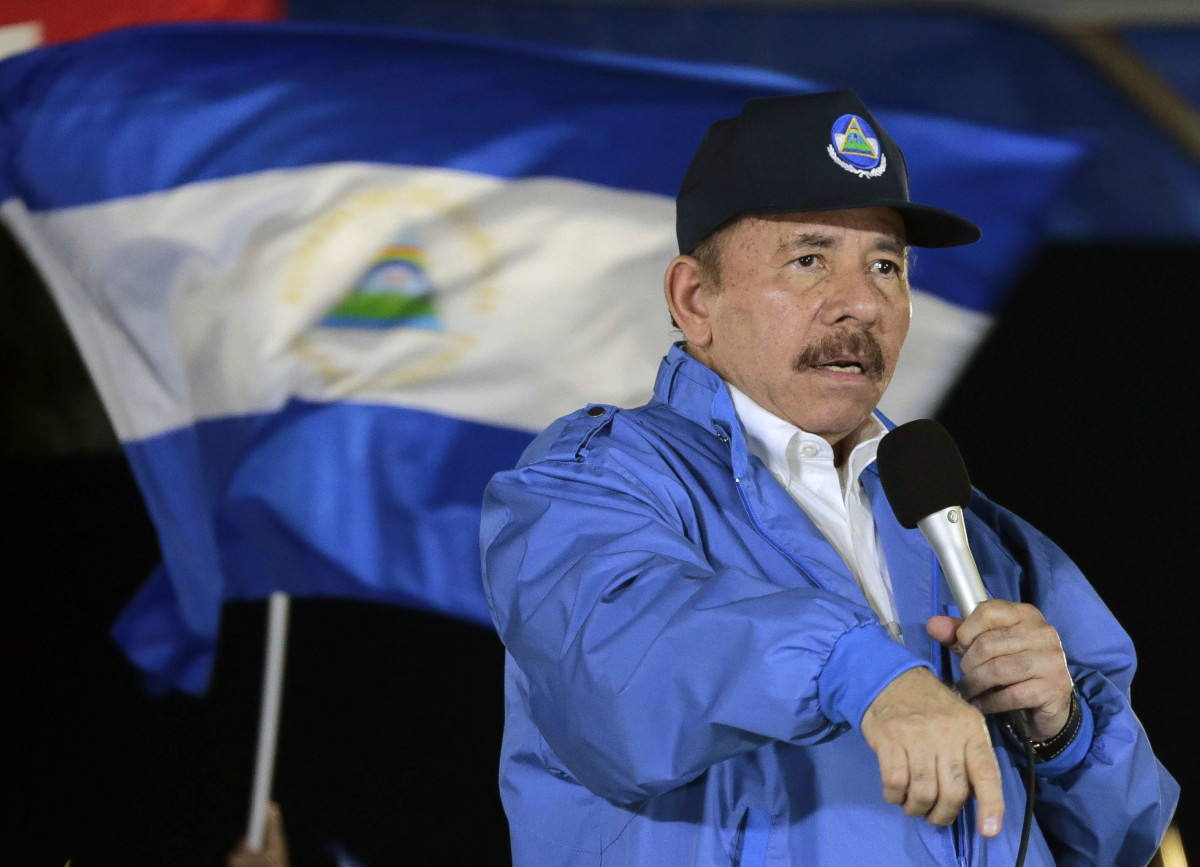RIO DE JANEIRO, BRAZIL – Students, farmers, entrepreneurs, feminists, indigenous peoples, academics, evangelicals, civil society organizations, victims of repression, and even traditional political parties launched a National Opposition Coalition in Nicaragua on Tuesday.

This new and diverse group seeks to force Daniel Ortega’s regime to restore “confiscated” democratic freedoms, free political prisoners, and promote electoral reforms leading to “clean and transparent” elections.
The foundation of the ‘Coalición Nacional’ (“National Coalition”) was driven by the Civic Alliance and the Blue and White National Unity (UNAB), two platforms born in the heat of the social protests begun in April 2018, which were harshly repressed by the Sandinista (Sandinista National Liberation Front) government.
Faced with the balance of 325 murdered protesters, nearly 1,000 political prisoners and 80,000 Nicaraguans in exile, the various opposition groups finally converged into one, after months of talks and meetings.
The oppositional movement suffered the threat of a disproportionate mobilization of the National Police Special Forces. The Ortega government ordered the militarization of the capital and several cities in the country to prevent any protest or actions on the streets, forcing opposition activists to meet in a private bookstore to launch their coalition.
Before the police mobilization, vice-president Rosario Murillo threatened and harshly attacked her rivals, whom she called “malevolent,” “ridiculous devils,” “soulless” and “greedy”. “We are well aware of who they are, and we have not forgotten their vanity fair and masks of hatred, nor will we ever forget them,” said Murillo, who is married to Ortega.
“And the sacred ark has sunk. Just like the Civic Alliance that showed its true face, among fake crucifixes and even more fake prayers. The Alliance exploded, burst, displaying the living face of the despicable, of indignity,” she added.
With no defined leader
The National Coalition comprises seven civic organizations and political parties. However, it has not offered any leadership as a figure of unity, unlike what happened, for instance, in Venezuela with Juan Guaidó.

“We do not enjoy the privilege of having an independent Legislative Assembly. In Venezuela, there was an election of representatives elected by the people. In Nicaragua it is a movement with multiple leaderships,” said Juan Sebastián Chamorro of the Civic Alliance.
“Here are the faces of many of the leaders in this struggle. It is a joint and collective work. In this new proposal that we are introducing the concept of the leader, the messiah who will descend from heaven to solve our problems, must be eliminated. This is not the time to talk about candidacies,” he added.
According to Chamorro, the National Coalition intends to be an oppositional proposal that is not restricted to the electoral aspect alone – an issue that, however, is also present in view of the November 2021 general elections in the Central American country.
“The coalition’s goal is to democratize Nicaragua, but not as an electoral condition alone. That’s an important part, but now we’re working for the release of political prisoners, for pressing for the return of public freedoms, so that they may march in the country.
To promote electoral reforms, to introduce an electoral option, and thus govern under the purposes of a nation plan,” said Chamorro, who left his activities as a business executive to devote himself to the Civic Alliance.
One of the most controversial issues in the establishment of this new front was the inclusion of traditional political parties, among them the Constitutionalist Liberal Party (PLC), dominated by former Liberal President Arnoldo Alemán. He is rejected for having at one point joined the Sandinista Front in a political agreement that paved the way for Ortega’s return to the presidency.
Meanwhile, the members of the National Coalition claim to be integrated “at the grassroots” of the traditional parties, and not to their leaders, and also pledge to be guided by “a code of ethics”.
The opponents chose Tuesday, February 25th, as the date of the launching of the National Coalition as a reference to the 30th anniversary of the presidential election of Violeta Chamorro, which marked the end of the Sandinista Revolution and the first Ortega government in 1990. The date is a symbol of the unity of the now fragmented opposition in the 1990s, under the acronym of the National Opposition Union (UNO).
“We the signatories hereby commit ourselves to devote all our efforts to seek out the citizens and organizations lacking to join forces and form a multilateral platform that allows us to build, with clear, fair and transparent rules, a design for the National Coalition,” said Yubrank Suazo, a former political prisoner.
“We were inspired by the victory obtained on that February 25th, 1990 and committed to the victims of the regime, to bring about the new and definitive birth of democracy, for the good of all Nicaraguans”.
Source: El País

